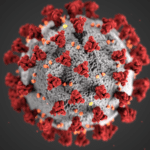In recent years, gluten sensitivity has emerged as a significant topic of discussion in the world of nutrition and health. Many individuals are now exploring gluten-free diets, even in the absence of celiac disease. But what exactly is gluten sensitivity, and what causes it? Join us as we delve into this fascinating subject to uncover the factors behind this increasingly common condition.
Understanding Gluten Sensitivity
First, let's clarify what gluten sensitivity is. It's a condition characterized by adverse reactions to the consumption of gluten-containing foods, such as wheat, barley, and rye. Unlike celiac disease, a well-defined autoimmune disorder triggered by gluten, gluten sensitivity lacks specific diagnostic markers and is often diagnosed based on the exclusion of other conditions. Symptoms of gluten sensitivity can range from gastrointestinal discomfort and fatigue to headaches and joint pain.
The Complex Web of Causes
While the exact cause of gluten sensitivity remains somewhat elusive, researchers have made significant strides in understanding the potential factors contributing to this condition and how to manage celiac disease. Here are some key insights into what might be behind gluten sensitivity:
1. Gluten Composition
The composition of modern wheat, a primary source of gluten in the Western diet, has evolved over time. Changes in wheat varieties and breeding techniques have led to higher gluten content. Some experts suggest that these changes could be a factor in the increased prevalence of gluten sensitivity.
2. FODMAPs
Fermentable Oligosaccharides, Disaccharides, Monosaccharides, and Polyols (FODMAPs) are types of carbohydrates found in various foods, including those containing gluten. Some individuals with non-celiac gluten sensitivity may actually be sensitive to FODMAPs rather than gluten itself. This overlap in symptoms can make diagnosis challenging.
3. Gut Health
Emerging research highlights the role of gut health in gluten sensitivity. An imbalanced gut microbiota or a "leaky gut" may contribute to increased sensitivity to gluten proteins, triggering an immune response or inflammation.
4. Genetics
Genetic factors may play a role in predisposing individuals to gluten sensitivity. Certain genetic markers have been associated with an increased risk of gluten-related disorders, including non-celiac gluten sensitivity.
5. Immune System
Although it doesn't involve the autoimmune response seen in celiac disease, gluten sensitivity may still involve the immune system. The innate immune system, which provides the initial defense against pathogens, may be activated in response to gluten consumption in sensitive individuals.
6. Non-Gluten Proteins
Recent studies have identified that some non-gluten proteins present in wheat can trigger reactions in individuals with gluten sensitivity. These proteins, such as amylase trypsin inhibitors (ATIs), may contribute to symptoms.
7. Diagnosis Challenges
Diagnosing gluten sensitivity can be tricky because it's primarily a diagnosis of exclusion. Other conditions, like irritable bowel syndrome (IBS) and wheat allergy, have similar symptoms and must be ruled out before making a diagnosis of non-celiac gluten sensitivity.
8. Placebo Effect
Some research suggests that the perceived benefits of a gluten-free diet might, in some cases, result from a placebo effect. People who believe they are sensitive to gluten may experience symptom relief when they eliminate gluten from their diet, even if they don't have an underlying sensitivity.
Navigating Gluten Sensitivity
For individuals who suspect they have gluten sensitivity, navigating this dietary landscape can be challenging. The absence of definitive diagnostic tests means that it often involves a process of trial and error. Here are some steps to consider:
- Consult a Healthcare Provider: If you suspect gluten sensitivity, it's essential to consult a healthcare provider. They can help rule out other conditions and provide guidance on dietary changes.
- Keep a Food Diary: Recording your symptoms and food intake can help identify patterns and potential triggers, aiding in diagnosis and management.
- Gluten-Free Diet: If diagnosed with gluten sensitivity, a gluten-free diet is typically recommended. However, this should be done under the guidance of a healthcare professional or registered dietitian to ensure a balanced and nutritious diet.
- FODMAP Consideration: If FODMAPs are a suspected trigger, a low-FODMAP diet might be beneficial. Again, consulting with a healthcare provider or dietitian is crucial for proper implementation.
- Monitor Gut Health: Maintaining good gut health through a balanced diet, probiotics, and stress management may help reduce sensitivity.
- Genetic Testing: In some cases, genetic testing may provide insights into susceptibility to gluten-related disorders.
Unraveling Gluten Sensitivity with Expert Guidance from Northeast Digestive
While our understanding of gluten sensitivity has advanced considerably, many questions remain. The interplay of genetic, dietary, and environmental factors in gluten sensitivity continues to be an area of active research. As science unravels the mysteries behind this condition, we are better equipped to provide support and guidance to those navigating the challenges of gluten sensitivity.
Gluten sensitivity is a complex and multifaceted condition with a range of potential contributing factors. It's crucial for individuals experiencing symptoms to seek professional guidance for proper diagnosis and management. Follow-ups with your gastroenterologist may not be at the top of your “to-do” list, but it can be one of the best things you will do all year. As our knowledge continues to evolve, healthcare providers, researchers, and individuals alike are working together to shed light on the enigma of gluten sensitivity, offering hope for a future where those affected can lead healthy and fulfilling lives. Ready to uncover the secrets of gluten sensitivity? Northeast Digestive is here to guide you toward a healthier tomorrow. Contact us today to start the journey for better digestive health!




